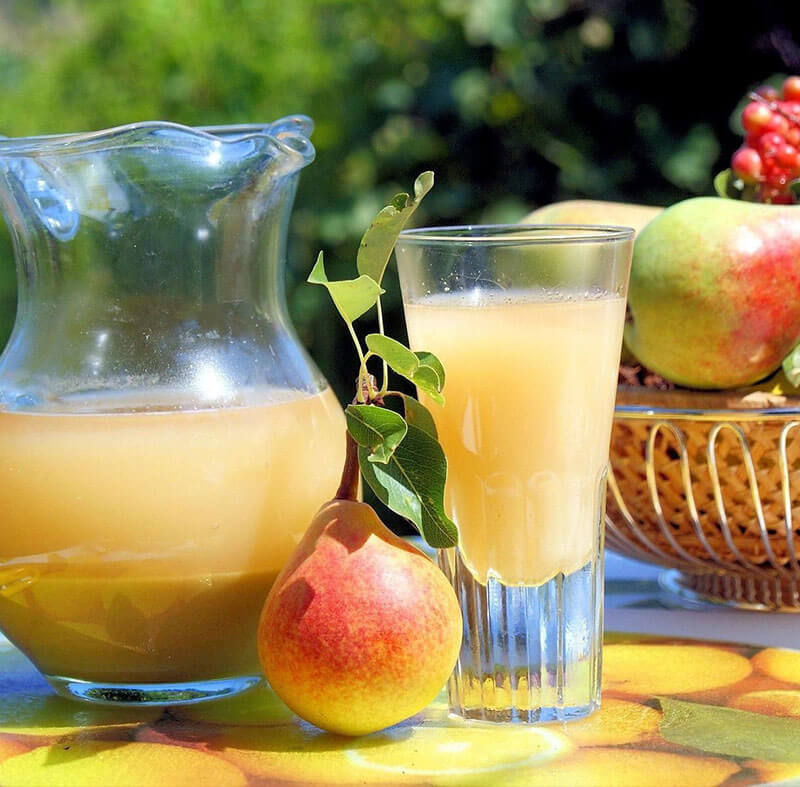Pear is undoubtedly one of the most beneficial and healthy fruits there is. It is a treasure trove of refreshing properties that you should definitely not miss. But what does the consumption of pear juice offer to our body?
Antioxidants
Like other fruits, pears are a source of antioxidants. There are 27 -41 mg of phenols per 100 grams.
Most of the antioxidants are found in the skin of the fruit,
A diet rich in plant foods is recommended to get a wide range of antioxidants.
Antioxidants can protect cells from damage associated with aging and chronic diseases. They are also considered anti-inflammatory, which can also provide protection against chronic diseases.
Rich in vitamin C.
Vitamin C acts as an antioxidant, but is also needed for collagen production, the production of other antioxidants in the body that are used for protein synthesis and wound healing. Fruits and vegetables are among the best sources.
Therefore, if you do not eat enough fruits and vegetables daily, your vitamin C intake may not be adequate.
A medium pear provides about 10% DV of vitamin C.
Therefore, pears or their juice can be a way to increase vitamin intake.
Possible protection against ulcers
Some substances in pears have been analyzed in animal studies. In mice, some substances have been shown to have an anti-ulcer effect.
This may be due to the antioxidants – they protect or increase the healing of the ulcer.
Do the substances in pears protect against ulcers?
More research is needed to clarify the impact on humans.
If you have an ulcer or suspect you may have it, talk to your doctor before drinking any juice.
Rich source of potassium
Adults need about 4,700 mg of potassium daily, but most do not get enough in their diet.
One reason may be that most people do not eat a lot of fruits and vegetables, which are a good source.
Potassium is needed for fluid balance, muscle contraction, bone health and pressure regulation.
One pear provides 206 mg of potassium (5% DV).
FODMAP sensitivity
If you follow a diet low in FODMAP – fermentable oligosaccharides, disaccharides, monosaccharides and polyols – apples and pears are considered a food with many of them, because they are higher in fructose. If your doctor advised you to follow a diet low in FODMAP, juice or pears may not be the best.


